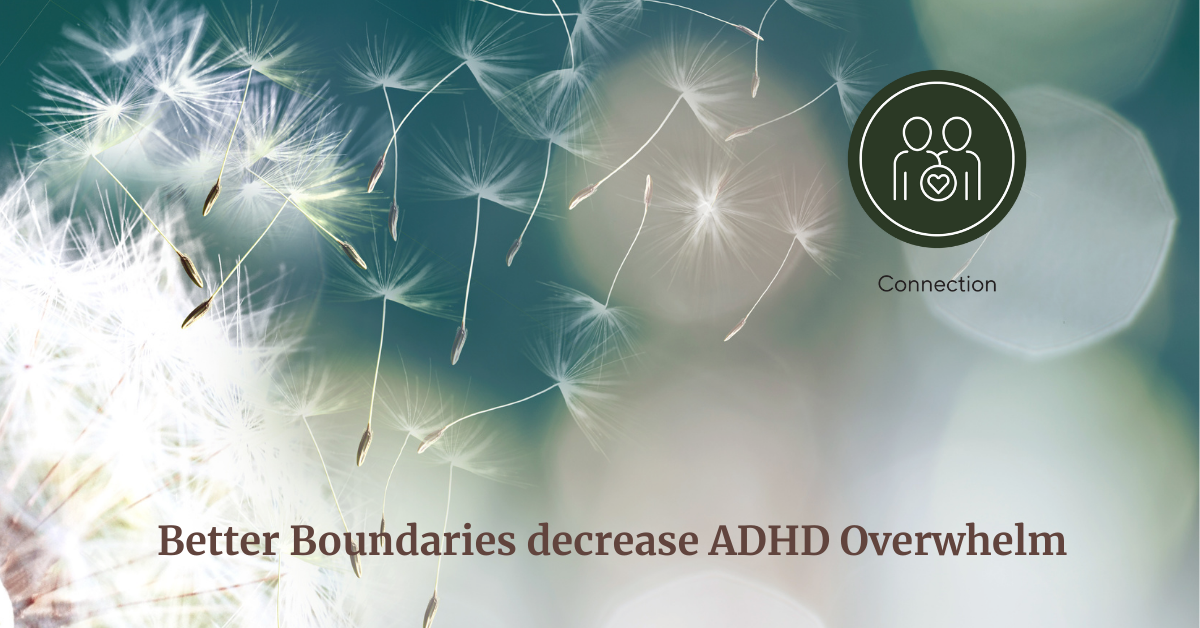What is ADHD Overwhelm?
ADHD Overwhelm is very Real. Overwhelm in the ADHD brain is when your mind literally shuts down, much like a power grid that has too much demand on it, effectively shorting it out.
One of the biggest differences in how the ADHD brain works is in how it receives and processes incoming information. We receive most information (whether sensory, emotional, physical or mental) as large, unsorted, unfiltered blocks. That sort of uncensored, overload of information amounts to way too much for our minds and we feel as though we’ve been hit by a two by four and so our brains literally shut down.
The Survival Mode
Without self-awareness, coaching or support to help us handle these overloads in other ways, we often develop coping mechanisms to try to handle this overload. One of the most common ways we cope is by going into a kind of Survival Mode of withdrawing or avoiding to try to limit any situations that will put more demands on us.
The Fallout from Survival Mode
Though it’s a much needed even effective coping mechanism that gets us through the next few hours, days or weeks, we don’t always feel good about this response. We feel shame and depression for withdrawing or avoiding, which then impacts our self esteem and trust in our own efficacy to follow through.
If this method of coping becomes habitual, we will also miss out on opportunities and growth and our lives can become narrower and less fulfilling.
Chunking reduces Overwhelm for some things…
All the ADHD tips and hacks on how to handle Overwhelm (in the productivity sense) generally focuses on ‘chunking’ (breaking down incoming information into smaller more digestible chunks). Chunking allows us to approach tasks in faster, more doable sprints, (which are much more aligned with how we innately function). What isn’t addressed so much is how to handle Overwhelm and the subsequent shut down and Survival Mode, when it’s triggered not by a task but by an Emotional or Relational situation.
What to do for Emotional and/or Relational Overwhelm?
For instance your partner or child, family member or friend asks if you can do something for them, maybe just spend time with them. Their request is a reasonable one (espcially given their importance in your life) and it’s what you’d like to be able to give, but at the same time what they’re asking makes you feel like you just got hit by a two by four, causing you to retreat into the Survival Mode, negatively impacting your relationships.
This is still ADHD Overwhelm, only now it’s showing up in a more emotional/relational sense.
The Need
As I like to say, “When you Meet the Need the Traits Recede”.
What’s needed here is a way of controlling the incoming demands so we don’t need to shut down, withdraw or avoid.
Much like a filter works to partially screen out unwanted stuff, what we want is something that allows us to stay engaged and respond, versus react, while remaining connected.
Boundaries Meet this Need…
Boundaries are essentially the limits you have, for what you allow into your life. They can be physical, emotional, sexual or spiritual. They can move/change depending on the situation.
Healthy boundaries range from permeable and flexible to firm and strong.
Boundaries can also be tough for many people to set, but for people with ADHD (especially when we’re in the middle of Overwhelm) it’s almost impossible.
Firstly because the skills needed to express our needs and articulate a Boundary are temorarily offline.
Secondly growing up with undiagnosed ADHD and/or with parents who were also undiagnosed and untreated means we’ve often grown up in emotionally reactive and/or chaotic homes and that was our “normal”. So Boundaries and boundary setting can a bit of a foreign concept to us and can even feel quite alien at first.
“Walls Keep everyone out Boundaries teach people where the doors is”
-Mark Groves
The work of knowing your personal Boundaries and asserting them, requires some self-awareness and some knowledge of what healthy versus unhealthy boundaries look like for you.
If we don’t do this work, we end up retreating behind a wall (avoidance & withdrawal is a great example of a wall).
Though protective in the short term, long term it’s you and your relationships that suffer.
Permeable vs Rigid Boundary
I personally love the image of a Dandelion Clock as a natural example of what a Healthy Boundary looks like.
The seeds create a barrier that protects the plant from most unwanted invaders, yet the barrier is not so rigid as to keep out needed light or moisture, so the Dandelion is open to receiving nurture while also proecting itself!
Not setting healthy boundaries means we either continue to be “out there in the world”, absotlutely overwhelmed, stressed, depressed and overburdened by too many demands, or continuing with our reactive Survival Mode of withdrawal and avoiding, building walls that corrode our confidence, relationships, self esteem, self efficacy and our ability to stay engaged with the world.
I’d love to hear how this blog resonated with you.
Can you relate to the Survival Mode response to emotional Overwhelm? Comment below!
I will be following up from this Blog with more on how to set healthy v. unhealthy Boundaries, what that looks like and some examples to help you be able to participate more in life but on your terms!


2 thoughts on “Better Boundaries Decrease ADHD Overwhelm”
Hi Diane,
I found this very helpful, and very relevant. Both fir understanding my past and for forming tools, habits, practices for the future.
Thank You.
Heike
Thanks Heike! I appreciate that it landed well for you! Hope you can find ways to put some of these ideas into action
Comments are closed.